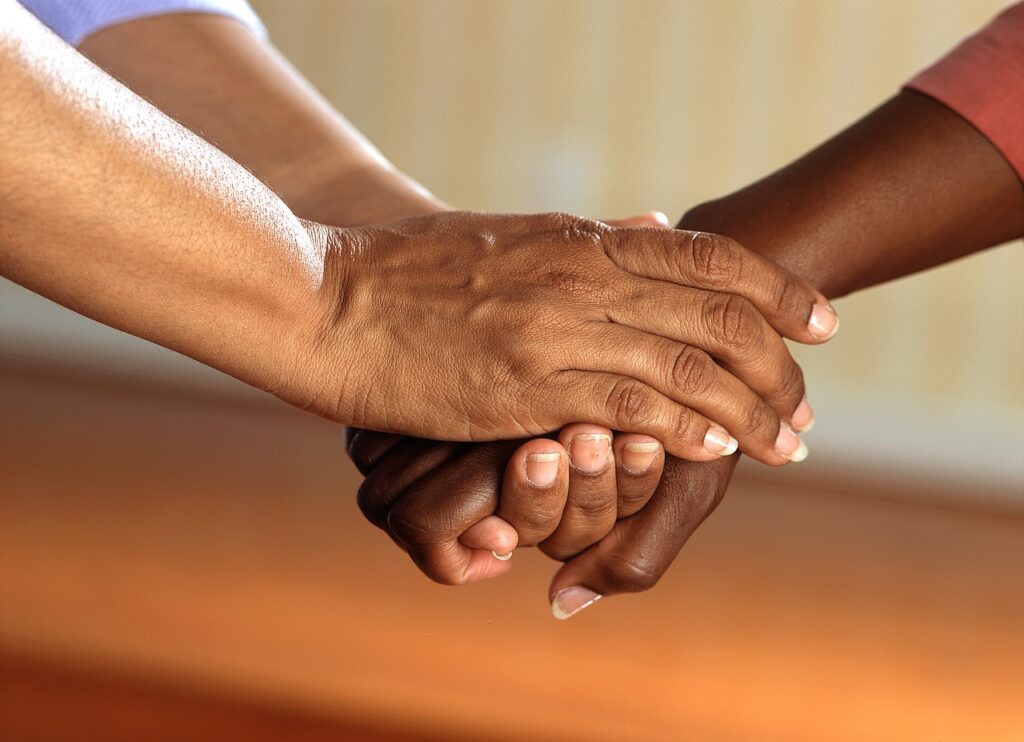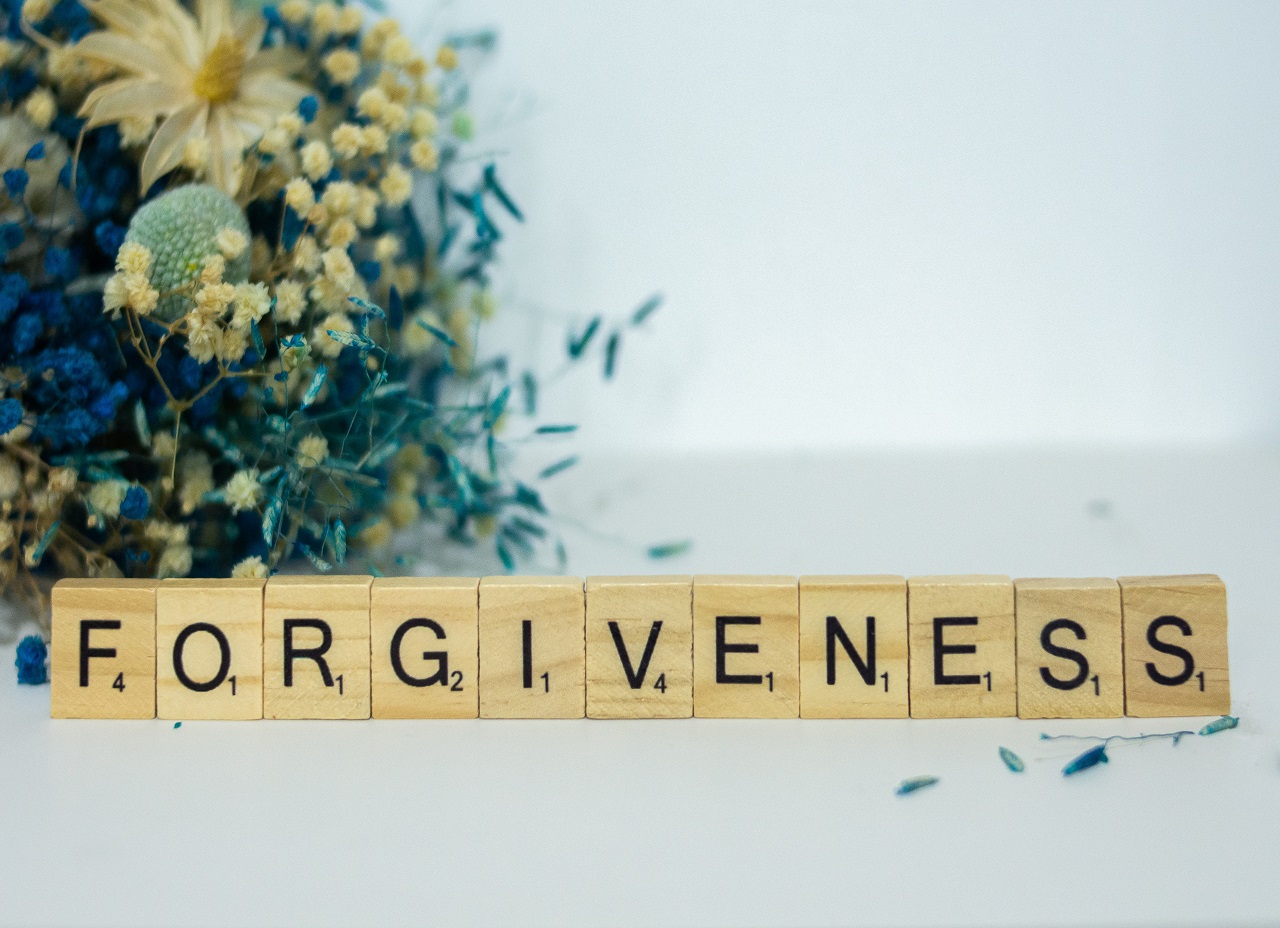Forgiveness for self is defined as the intentional and voluntary process by which a victim undergoes a change in feelings and attitude regarding an offense, lets go of negative emotions such as vengefulness, with an increased ability to wish the offender well. This concept has been extrapolated into society all across the globe. People are constantly seeking to resolve conflicts and differences by forgiving one another. For many, the act of forgiving may be viewed as a way to feel better about themselves or to avoid negative consequences that might result if their relationship continues in its current state. The process of forgiveness is debated across the world, with recent studies showing that people who forgive live happier lives.
To relieve the pain from being hurt or oppressed, a person needs to practice forgiveness. It is a liberating and powerful emotion that can help people become less angry and more content with themselves and their current situation. However, some individuals do not know how to forgive another individual because it is such a difficult process. Unlocking the power of forgiveness is no easy feat and requires practice and discipline to facilitate the positive change of one’s mental state.
There are many benefits of forgiveness, both mentally and physically: it can help relieve stress and anger; promote better sleep and eating habits; increase one’s will to achieve goals; help overcome addictions; decrease feelings of depression and loneliness; increase self-worth; give one a sense of control over their life to feel empowered, etc. These benefits are attainable by learning how to forgive other people for leading happy and healthy lives.
The following is a list containing 30 essentials to unlocking the power of forgiveness for self to live a happier life.
1. Forgiveness is not forgetting nor condoning the past offense committed against you. If your offender continues to offend or harm you, do not continue to forgive them for their actions. Just because you have forgiven someone does not mean that their past offense is forgotten or that you cannot be held accountable for it.
2. Forgiveness does not mean you will forget the wrongs someone has done to hurt you and everyone around you. It means that you will choose no longer to allow those actions into your heart and mind nor allow them to control your happiness, health, and well-being.
3. It is okay to take the necessary time you need before you are ready to forgive others who have hurt you in the past. It does not matter how long it takes for you to feel joy again, as long as it happens. Life can be a roller coaster of emotions that cannot be controlled but can always be managed.

4. When you can forgive your offender, regardless of the severity of the offense committed against you, you must let go of any negative feelings towards them and say goodbye completely. You should not give yourself time limits or deadlines on when to cut ties with someone who has hurt you or let them back into your life.
5. It is okay to forgive someone but not forget the offense committed against you. By forgetting, you are allowing yourself to be disrespected again and taken advantage of more easily because it appears as though the first offense never happened at all. You need to remember the past incident to avoid being hurt by it in the future. Even though you have forgiven your offender, this does not mean that you have to forget the offense and let them back into your life without boundaries or limitations.
6. You should not expect anyone to forgive you every time you have hurt them or offended them. It is a natural human emotion to hold grudges, and some people do not forgive easily. Please do not allow this to discourage you from forgiving others when they need it most.
7. A life without forgiveness only limits the possibilities of what can be created in your current situation because the past is constantly holding you back. This can lead to an overall decrease in happiness, personal growth, and life satisfaction.
8. Forgiveness takes time but is worth every minute of practicing it if you allow yourself to feel the benefits it brings to your life. You may not be able to forgive immediately or even in a few days, months, or years from the time of being hurt by someone. When you can find your inner peace and happiness again after the offense has been committed against you, then this is when forgiveness finally takes place within you.
9. Forgiving others for their wrongs does not mean they will never be held accountable for their offenses. By forgiving them, you are only releasing the past action/s from what is holding you back and leaving it in the past where it belongs.
10. You should never force yourself to forgive someone if you feel as though it is not something that will ever happen, regardless of how long ago you were hurt by them. Forgiving is a personal decision that should not be taken lightly or coerced into doing, as it may end up making you feel worse about the offense that was committed against you and the person who committed it.

11. There will come a time in your life when you will need to forgive someone for moving forward. This may mean that the person who hurt you will never know that you forgave them, or it can be something he/she is aware of but does not expect.
12. Forgiveness should only occur when your offender has shown genuine remorse for their actions, and there is no longer a chance of their actions being repeated. If someone continues to hurt you or disrespect you, they should not be forgiven because no good will come from it if the offender does not learn from his/her mistakes.
13. Forgiveness is a gift that you give yourself, as well as your offender when it finally takes place between you two. It is a freedom from the pain and resentment you have held because of the offense committed against you.
14. When you find yourself holding onto resentment, it can affect your physical and emotional well-being by making you feel sick to your stomach or causing anger issues. Resentment also stops you from fully enjoying your life and taking advantage of the many opportunities available to you each day.
15. you need to make a conscious decision as to whether or not you should forgive someone based on what it will mean for yourself and your personal growth, rather than what it could mean for the person who offended you.
16. Forgiveness is an act of self-care that can bring peace and harmony back into your life once you truly choose to forgive someone who has wronged you, no matter how much time has passed since the offense took place.
17. You deserve to be happy and enjoy all of the beauty that life has to offer you without dealing with the pain and suffering caused by holding on to anger and resentment. You do not deserve this, and there are no benefits or positives that come from it.

18. You should only forgive someone if you want to let go of the past for yourself and if you feel it is the right thing to do.
19. You should not feel guilty for forgiving someone because you are not responsible for what they did or said to you in the past, no matter how much it hurt your feelings at that time. You cannot control their actions, but you can control whether or not you want to forgive them for their mistakes.
20. When someone has wronged you, the most powerful thing to do is forgive them because no matter what happens in your life, every morning when you wake up and go through your day, you will be able to make it better with forgiveness.
21. Deciding to forgive someone means that you will no longer be a victim of the past and allow it to determine your future.
22. Once you have forgiven someone for their wrongdoings towards you, or if you feel as though you will never be able to forgive them, then it is time for you to move on with your karma—you can either take revenge or forgive, but you cannot do both.
23. You cannot move forward or find inner peace until you have forgiven the person who wronged you for what it was that they did to upset your life and make you feel how you felt at the time.
24. If someone has hurt and offended you, then they must experience a sense of what you felt when they offended you because that is how karma works. You cannot get revenge or hold a grudge without expecting the same thing to happen to you, if not worse.

25. You should only forgive someone once the offense against you has been made right, and there seems to be no chance of the situation being resolved any other way.
26. You should not forgive someone for their wrongdoings against you if your life is in danger, if they are still actively hurting you, or if the person who offended you does not seem caring enough to attempt to make things right by apologizing and trying to correct his/her mistakes.
27. A person who can forgive someone for their wrongdoings shows that they are better or stronger than the offender because it takes strength of character to let go of something so difficult.
28. Forgiveness will help you move on with your life but holding onto resentment and anger will only continue to cause you more pain and suffering long-term.
29. The best way to know for sure if you should forgive someone is to imagine your life without them in it, or what would happen if you continued to hold onto the past forever because of all of the pain that still lingers inside of your heart.
30. Deciding to forgive someone else is a decision to treat yourself with compassion and love because you are releasing their control over your mental state of mind.
Conclusion
The power of forgiveness for self can be a difficult thing to understand. But today, we’ve helped you unlock the secret with our 30 Essentials to Unlock the Power of Forgiveness list. We hope that these tips will help give your life more peace and less stress by offering some advice on forgiving others in different situations when they wrong us or hurt our feelings. If you want even more helpful information about this topic, make sure to follow this guide for all of the details!



